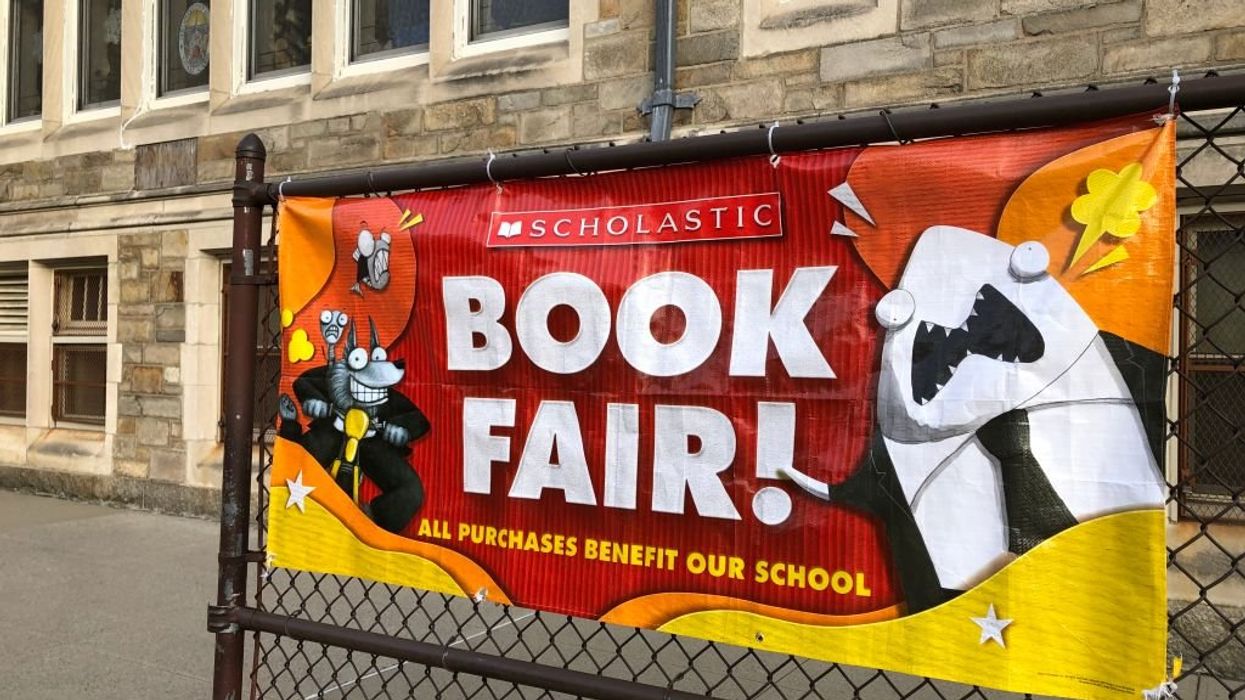
Photo by: Lindsey Nicholson/UCG/Universal Images Group via Getty Images

Scholastic was poised to provide elementary schools with the option of whether or not to expose children to a special collection containing some works of identitarian and LGBT propaganda. Following weeks of pressure from activist groups keen on depriving schools across the nation of such a choice, the company has backtracked.
The Scholastic Corporation announced on Oct. 13 that in the face of various legislative efforts across the country to protect children from obscene and/or divisive content, it would be rolling out a special collection containing "mostly LGBTQIA+ titles and books that engage with the presence of racism in our country." Accordingly, schools would get the choice of whether or not to display the collection or specific books within it at elementary school fairs.
According to a list obtained by EdWeek, the special collection included:
A number of the other books appear to have been relatively innocuous.
"To continue offering these books, as well as even more high-interest titles, we created an additional collection called Share Every Story, Celebrate Every Voice for our U.S. elementary school fairs," the company said in a statement. "We cannot make a decision for our school partners around what risks they are willing to take, based on the state and local laws that apply to their district, so these topics and this collection have been part of many planning calls that happen in advance of shipping a fair."
The company, which reaches roughly 35 million children and hosts 120,000 events in the U.S. annually, noted that the solution wasn't perfect but stressed it was preferable to alternatively not offering the books at all.
Scholastic spokeswoman Anne Sparkman told the Daily Beast that in creating the collection, the company "began with titles we support even as they are the most likely to be restricted."
While supposedly optional, it appears the special collection would still have been accessible on-site.
"When local laws or policies create content restrictions, many fair hosts make the collection available during family hours, where parents accompany children to the event," added Sparkman.
Cailey Myers, a spokeswoman for the Florida Department of Education, intimated this was much ado about nothing, noting that various books in the special collection, such as the John Lewis biography, were more than welcome in the Sunshine State, reported the New York Times.
Myers further pointed out that one of the books on the list was, in fact, suggested reading by the state's English standards.
"This is a political stunt by a corporation prioritizing activism over the well-being of children," said Myers.
Regardless of whether it was a stunt or a possible gambit for earned media, the possibility that schools might be given even the illusion of a choice in the matter of what books to put before kids was too much to bear for various activist groups.
Hundreds of Scholastic authors signed a statement on Oct. 20 denouncing the move, noting they "cannot stand by while some of our books are offered to readers, while other works are separated and deemed as possibly dangerous to children."
"The books separated for optional exclusion are almost entirely written about or by people of color or the LGBTQIA+ community. Deciding that the subject matter of these books might go against a state's law capitulates to the idea that these books are not suitable for children. That is harmful, and wrong," continued the statement. "Putting diverse books in a separate, optional collection is a form of censorship that cannot be supported."
The children's authors' letter went onto equate this option with a book ban.
One non-straight Scholastic author, Democratic Socialists of America member Molly Knox Ostertag, suggested that the company's special catalog "doesn't come across as anything but an attempt to compromise with, frankly, fascist laws."
Pen America similarly lashed out, stating that it "shares the dismay we are hearing from authors over news that, at Scholastic Book Fairs, access to certain books by a diverse group of authors has been limited or partitioned because of content related to race, racism and LGBTQ+ identities.
"It will deny the opportunity for all students to encounter diverse stories that increase empathy, understanding, and reflect the range of human experiences and identities which are essential underpinnings of a pluralistic, democratic society," added the group.
Despite its invocation of democracy, Pen America once again underscored its loathing for the legislation passed by democratically elected lawmakers across the land.
Pen America and other outfits evidently applied sufficient pressure to force the company into submission.
The New York City-based company provided an update Wednesday, stating, "We offered a collection of books to supplement the diverse collection of titles already available at the Scholastic Book Fair. We understand now that the separate nature of the collection has caused confusion and feelings of exclusion."
On account of the backlash, the company will not be offering the "Share Every Story, Celebrate Every Voice" collection in January as planned.
Scholastic also took a thinly veiled shot at state Republicans, suggesting it was "unsettling that the current divisive landscape in the U.S. is creating an environment that could deny any child access to books, or that teachers could be penalized for creating access to all stories for their students."
Jonathan Friedman, an activist at Pen America, said of the company's about-face, "Scholastic recognized that, as difficult a bind as this pernicious legislation created, the right answer was not to become an accessory to censorship. ... Scholastic is an essential source of knowledge and a delight for countless children. We are glad to see them champion the freedom to read," reported Publishers Weekly.
Like Blaze News? Bypass the censors, sign up for our newsletters, and get stories like this direct to your inbox. Sign up here!